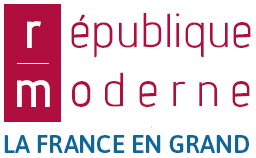
In the past 60 years, two major choices have shaped French foreign policy while pulling France and the UK apart: the European project begun after the second world war and built in accordance with Jean Monnet's conception,; and national independence, as sought by Charles de Gaulle after his return to power in 1958. These two paths were contradictory, the first only comprehensible because France, having twice nearly perished during the first part of the 20th century, had such profound doubts about itself that it chose to make Europe a substitute for the nation. The UK, however, could not come to terms with having to fade within a "supranational" Europe.
This view was shared by De Gaulle: the general did not believe in supranationality, but he did want to build a "Europe of nations". Beyond this, he defined his objective as the emergence of a "European Europe" – agent of its own destiny. This was a bitter pill to swallow for the UK, which was attached to its special relationship with the US.
Today, the crisis of the euro reflects the impasse reached by supranational Europe. The French project of burying German reunification within a federal Europe – the idea behind the Maastricht treaty – ended long ago. And curiously, it is this moment which President Sarkozy has chosen for France to rejoin Nato, under the bizarre pretext of facilitating the emergence of "European defence".
This view was shared by De Gaulle: the general did not believe in supranationality, but he did want to build a "Europe of nations". Beyond this, he defined his objective as the emergence of a "European Europe" – agent of its own destiny. This was a bitter pill to swallow for the UK, which was attached to its special relationship with the US.
Today, the crisis of the euro reflects the impasse reached by supranational Europe. The French project of burying German reunification within a federal Europe – the idea behind the Maastricht treaty – ended long ago. And curiously, it is this moment which President Sarkozy has chosen for France to rejoin Nato, under the bizarre pretext of facilitating the emergence of "European defence".
French diplomacy thus has a double hangover. Germany has dragged Europe, or in any case the eurozone, into a bidding war of economic rigour leading to a historical dead end. France does not dare to challenge Angela Merkel's policy, because it is reluctant to question the rules of the game accepted by François Mitterrand when they were set out, back when he thought he could modify them when the right moment presented itself. They have now proven to be inadequate and impossible to change in substance: thanks to the rules imposed by Maastricht, the European central bank does not believe it has the authority to intervene in debt markets in order to smash speculation and save the euro. The currency is doomed – it is smothering every economy in Europe, except Germany's. Floating between the dollar and the Chinese yuan, we are, in effect, caught in the jaws of the G2, or "Chinamerica".
This is all the more worrying because, in addition, French diplomacy has recently followed in the wake of US diplomacy. But the US is less and less concerned about Europe; it is increasingly turned towards the Pacific and China. While French diplomacy has lost its bearings, it could find them anew if it returned to De Gaulle's Europe of nations, whose vocation is to exist between the US and China. Is this the path laid out by the Anglo-French agreements of November 2010? It is too early to say, however desirable the prospect may be. Relations with Barack Obama are no longer a bone of contention between the two countries. The UK is seeking to influence the US by remaining close to it, France is pursuing the same objective by opposite means: independence, but within an alliance. And as for Nato? Yes, but only on the condition that we do not compromise our influence in Arab countries.
In recent weeks, the US has only allowed France and the UK a hand in Libya, nothing more. Our two long-lived nations must, together, represent the aims of the US leadership while also taking care to work within a frame of legality in an international context, keeping the protection of civilians in mind. We must respect the democratic will currently expressed by the Arab world, and gather a maximum number of Arab, African and developing countries around a strategy which should only seek to establish the conditions of self-determination for the Libyan people. This is how we will, together, best prepare the future of a great democratic Europe of the nations – one stretching from the Mediterranean to Russia.
The UK has to consider its future with Europe. Our two nations could help set Europe back on her feet. We could do Europe this service at the same time as we do it for ourselves.
-----
=> voir l'article en français
This is all the more worrying because, in addition, French diplomacy has recently followed in the wake of US diplomacy. But the US is less and less concerned about Europe; it is increasingly turned towards the Pacific and China. While French diplomacy has lost its bearings, it could find them anew if it returned to De Gaulle's Europe of nations, whose vocation is to exist between the US and China. Is this the path laid out by the Anglo-French agreements of November 2010? It is too early to say, however desirable the prospect may be. Relations with Barack Obama are no longer a bone of contention between the two countries. The UK is seeking to influence the US by remaining close to it, France is pursuing the same objective by opposite means: independence, but within an alliance. And as for Nato? Yes, but only on the condition that we do not compromise our influence in Arab countries.
In recent weeks, the US has only allowed France and the UK a hand in Libya, nothing more. Our two long-lived nations must, together, represent the aims of the US leadership while also taking care to work within a frame of legality in an international context, keeping the protection of civilians in mind. We must respect the democratic will currently expressed by the Arab world, and gather a maximum number of Arab, African and developing countries around a strategy which should only seek to establish the conditions of self-determination for the Libyan people. This is how we will, together, best prepare the future of a great democratic Europe of the nations – one stretching from the Mediterranean to Russia.
The UK has to consider its future with Europe. Our two nations could help set Europe back on her feet. We could do Europe this service at the same time as we do it for ourselves.
-----
=> voir l'article en français





 Bio
Bio Envoyer à un ami
Envoyer à un ami Version imprimable
Version imprimable Augmenter la taille
Augmenter la taille Diminuer la taille
Diminuer la taille






 © Chevement.fr 2015
© Chevement.fr 2015